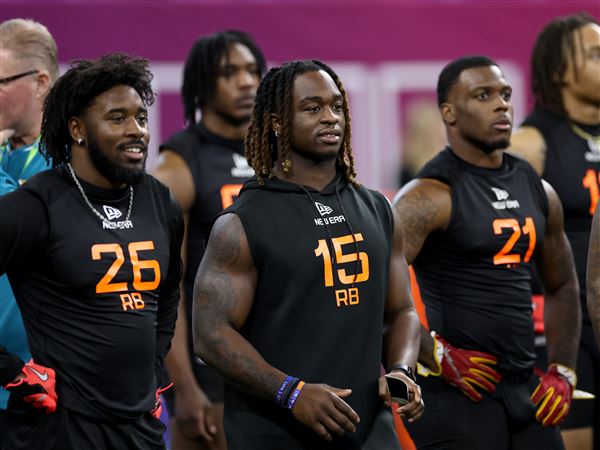Over the course of nearly five decades, Mylan Laboratories has built itself into one of the nation's biggest generic drug makers. Over the weekend, it struck a deal that would rank it among the biggest in the world.
The Canonsburg-based company announced late Saturday that it was buying the generics arm of Germany-based Merck KGaA for $6.6 billion, a blockbuster deal that will triple Mylan's size and make it a major player overseas.
Mylan said the combined companies would have had revenue of $4.2 billion and employed 10,000 last year, versus $1.26 billion and about 2,800 alone at Mylan in its most recent fiscal year that ended in March 2006. It has not yet reported fiscal 2007 results.
"Mylan's acquisition of Merck generics would substantially complete the execution on one of its long-term visions: to create a world class global quality generics leader," Robert J. Coury, Mylan vice chairman and chief executive officer, said in announcing the merger agreement.
"This is truly a one-of-a kind opportunity for Mylan to acquire a pristine quality asset that transforms Mylan from the third largest generic drug company in the United States to the third largest generic drug company worldwide," said Mr. Coury. "The leadership of Merck KGaA generics and Mylan recognized the unique opportunity to form a world class global generics leader that is well positioned for future growth and success."
The deal also would represent a big win for Mylan. It was believed to be bidding against other, larger drug companies, including Israel's Teva Pharmaceuticals Industries, the world's biggest generics drug company.
Moreover, the Merck buy could potentially dispel lingering doubts about Mr. Coury in the wake of his failed effort two years ago to buy a smaller, Tennessee-based specialty drug company, King Pharmaceuticals. That deal fell apart when financier Carl Icahn stepped in and worked to kill it, in part by questioning the leadership of Mr. Coury.
Since then, Mylan has worked to focus on its core generics business, pushing to get exclusive rights for a variety of popular branded drugs and, in January, acquiring a controlling stake in India-based Matrix Laboratories for $756.1 million. Matrix manufactures raw materials used in medicines and has a significant presence in emerging markets in India, Chile and Africa.
The Merck generics unit is much larger with a much bigger presence in Europe. It ranked third in the world last year among generic companies, Mylan said, and held the No. 1 market share position in Australia, France and Scandinavia. It also has a U.S. subsidiary, Dey Inc., in Napa, Calif., northeast of San Francisco, that focuses on respiratory and allergy products and had sales of $650 million last year.
"The fit between our two companies is truly outstanding," Mr. Coury said.
The deal doesn't come without pain for Mylan shareholders.
To finance the all-cash transaction, Mylan plans to eliminate the dividend on its common stock and to issue $1.5 billion to $2 billion of equity and equity-linked securities that could dilute shareholders' earnings. It also anticipates the deal will reduce full-year earnings per share the first year after the merger, and won't add to earnings per share until year three.
At the same time, Mylan said it believes the new, merged company will have "a dramatically accelerated growth profile" capable of capitalizing on the growing global demand for cheaper generic drugs.
It added that it does not anticipate significant reductions in employees at Mylan, Merck generics or Matrix, but it does hope to achieve $250 million in savings by year three.
Merck KGaA, the world's oldest pharmaceuticals company, dating back more than 300 years, earlier this year said it was contacting firms that might be interested in its generics arm.
Merck last year chased rival German drug maker Schering, but was outbid by Bayer AG. It then bought Swiss biotech company Serono SA for $14.3 billion in a deal aimed at expanding its range of drugs and its share of the global biotechnology market.
The sale to Mylan would let it cut its debt related to its buyout of Serono and get it out of a generics business that, despite growth, is confronting tight profit margins. A number of generics firms have moved to consolidate with others to build market share and drive down per-unit costs.
The transaction is subject to review by regulatory authorities in both countries and is expected to close in this year's second half.
First Published: May 14, 2007, 3:15 a.m.














